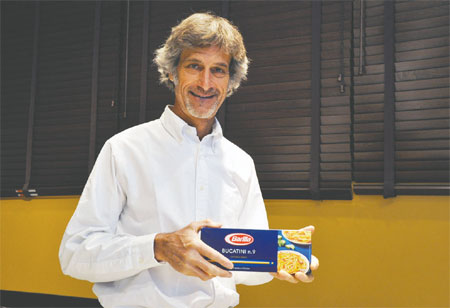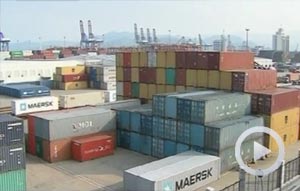Barilla designing new pasta for the wok
Updated: 2013-07-05 11:38
By Zhang Yuwei in New York (China Daily)
|
||||||||
|
Guido Barilla, fourth generation head of the Italy-based pasta maker, says his company is in the process of creating a product that will bring Italian cuisine into Chinese kitchens. Zhang Yuwei / China Daily |
Guido Barilla, chairman of Barilla Group, the world's largest pasta company, emphasizes the importance of "made for the people" when he talks about his company's global strategy.
At a recent event in New York to present a biography of his late father, Barilla, 54, the family business's fourth generation boss, talked about the company's ambitious plans to tap into emerging markets, with Brazil and China topping the list.
"China is - by definition - an extremely important market for every food producer, and China is an immense market for us," he told China Daily, adding that his team is developing a new product that's tailored for Chinese consumers - "wet pasta".
"Our products are not exactly designed for the wok," Barilla said, "so we are in the process of designing some products that are specifically and technologically done for the wok."
Designed for cooking in the wok, he explained, but by adding sauce, it will taste like authentic Italian pasta.
"This is what we want to achieve - to make a product that is friendly to the Asian and Chinese consumers," said Barilla, adding that they hope to launch the product within the next two years.
Like many foreign companies, Barilla's products are already in some Chinese stores. While it doesn't have an operation in China, developing a new pasta for the wok will mean forming partnerships with local businesses to co-produce it, a stage Barilla calls "testing the waters".
If successful, he said, "we will be open to invest and build factories in China in the next three or four years".
Barilla, a philosophy major, and his two brothers - Luca and Paolo - took over the family business after their father Pietro passed away in 1993. The company started as a pasta and bread shop in 1877 in Parma, Italy, its headquarters.
With more than 40 factories in countries ranging from Greece and Germany to Russia, Turkey and the US, and an annual production of around 2.5 million tons, the Barilla Group sells its pasta, bread and bakery goods in 100 countries with annual revenues of close to 3.2 billion euros ($4.16 billion), after the sale of its interest in German bakery company Lieken in February.
Barilla said the Lieken deal, which started in 2002, was a "mistake" because of some undisclosed financial problems during early negotiations. But selling the company - after managing it for the past decade - will allow the Italian pasta producer to focus on its core business, he added.
The company entered the US market in 1996 and became the No 1 brand in the US after just three years. North and South America represent some 15 percent of its revenue and Asia and Africa together are about 5 percent. The next big moves, said Barilla, are China and Brazil.
Barilla, who first visited China 12 years ago, said he has no opinion on the debate over whether pasta was first made in China or Italy, but the similarity between Italian pasta and Chinese noodles, he said, creates a link between the two food cultures.
"The Chinese have a very good friendship with pasta because they eat noodles, and it's definitely an opportunity for us," said Barilla, adding that his favorite Chinese food is dim sum, which reminds him of ravioli.
The Barilla company's goal - which comes from his father Pietro's vision - is not to just run a business and win the Chinese market. Rather, they hope to be an "ambassador of Italian cuisine" to help strengthen cultural understanding between Italy and China.
The company in 2009 set up Barilla Center for Food and Nutrition, a think tank that promotes food for sustainable growth and health.
"More young people are too detached from cooking and spend less time in the kitchen these days," said Barilla. He added that the company aims to increase the awareness of food in culture through its products and company philosophy, such as the "pasta for the wok" project.
On one of Barilla's recent trips to China, he attended the Global Fortune Forum in Chengdu.
"I was amazed by the quality of the city and the hospitality it shows its guests," said Barilla. "I felt the people there were really taking care of the city; I was impressed."
Barilla's goal to make the brand a cultural ambassador, and make him a regular visitor to China. "The next trip is in September," he said.
yuweizhang@chinadailyusa.com
(China Daily USA 07/05/2013 page10)

 Kobe Bryant reportedly has highest net worth in NBA
Kobe Bryant reportedly has highest net worth in NBA
 Chinese fleet arrives in Vladivostok for drills
Chinese fleet arrives in Vladivostok for drills
 Joey Chestnut wins 7th contest with 69 dogs
Joey Chestnut wins 7th contest with 69 dogs
 Lisicki, Bartoli to vie for new Wimbledon crown
Lisicki, Bartoli to vie for new Wimbledon crown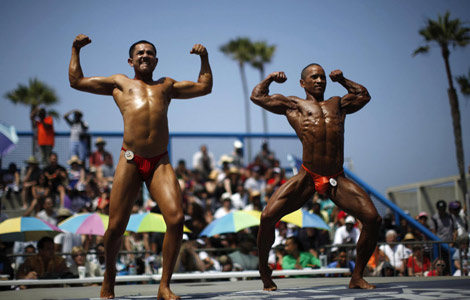
 Muscle Beach Independence Day
Muscle Beach Independence Day
 Tough workout for Li Na in war of words
Tough workout for Li Na in war of words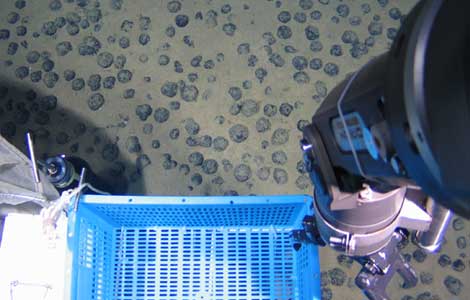
 Submersible taps mineral deposits in S China Sea
Submersible taps mineral deposits in S China Sea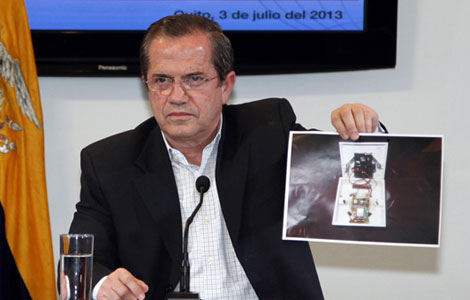
 Ecuador finds spy mic for Assange meeting
Ecuador finds spy mic for Assange meeting
Most Viewed
Editor's Picks

|

|

|

|

|

|
Today's Top News
China more 'normal' than 'exotic', new book shows
Missouri govt's veto won't stop Smithfield deal
Canadian potash deal shows trend among Chinese
Asian Americans more upbeat on home finances
Mandela on life support, faces 'impending death'
ROK to discuss Kaesong normalization with DPRK
Gunman shoots two, commits suicide in Texas
Baby formula probe to shake or reshape industry?
US Weekly

|

|
